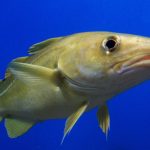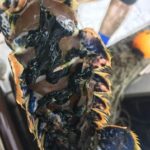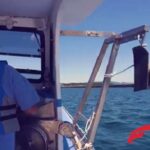Tag Archives: South Carolina Shrimpers Association
South Carolina shrimpers applaud decision to impose duties on shrimp imported from four countries
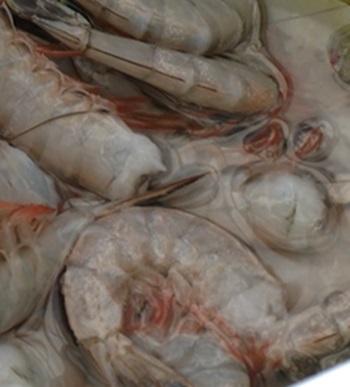 South Carolina shrimpers are celebrating the U.S. International Trade Commission’s recent decision to crack down on frozen shrimp imports from four countries. The ITC voted in favor of issuing countervailing duties on frozen, warm-water shrimp imports from Ecuador, India, and Vietnam after the U.S. Department of Commerce determined those governments were illegally subsidizing the industry. “We’re grateful because it’s an acknowledgment of what we feel and we experience in the industry and we see on a daily basis,” said Bryan Jones, a first-generation shrimper who lives in McClellanville. Jones serves as vice president of the South Carolina Shrimpers Association and was among a group of commercial fishermen who testified before the ITC in Washington, D.C. in October. more, >>CLICK TO READ<< 14:20
South Carolina shrimpers are celebrating the U.S. International Trade Commission’s recent decision to crack down on frozen shrimp imports from four countries. The ITC voted in favor of issuing countervailing duties on frozen, warm-water shrimp imports from Ecuador, India, and Vietnam after the U.S. Department of Commerce determined those governments were illegally subsidizing the industry. “We’re grateful because it’s an acknowledgment of what we feel and we experience in the industry and we see on a daily basis,” said Bryan Jones, a first-generation shrimper who lives in McClellanville. Jones serves as vice president of the South Carolina Shrimpers Association and was among a group of commercial fishermen who testified before the ITC in Washington, D.C. in October. more, >>CLICK TO READ<< 14:20
South Carolina shrimpers are in troubled waters. Here’s how the industry is seeking relief
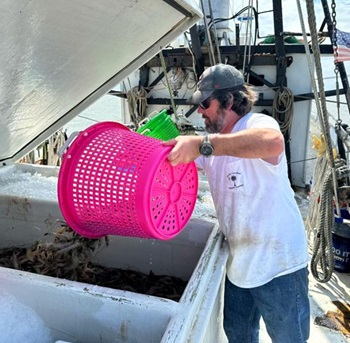 South Carolina shrimpers are in a fight for their industry’s future. Facing pressures from foreign countries shipping in cheap, frozen catches in abundance, domestic shrimpers have been unable to compete. Bryan Jones is a first-generation shrimper in McClellanville. Before his life became centered around nets and saltwater and fresh catch, he was a vice president of a wealth management firm in Florida. The work is exhausting and the days on the deck of his trawler, the Pamela Sue, are long, Jones said. There are risks involved with shrimping — financial, environmental, physical — but he saw an opportunity to create a livelihood for his family and couldn’t resist. He joins at a time when fishermen are struggling, and more are deciding to leave the trade altogether. “The average age of a shrimp boat captain, I believe, is 65,” Jones said. “What we need is an injection of youth in the industry to sustain it.” Photos, more, >>CLICK TO READ<< 11:21
South Carolina shrimpers are in a fight for their industry’s future. Facing pressures from foreign countries shipping in cheap, frozen catches in abundance, domestic shrimpers have been unable to compete. Bryan Jones is a first-generation shrimper in McClellanville. Before his life became centered around nets and saltwater and fresh catch, he was a vice president of a wealth management firm in Florida. The work is exhausting and the days on the deck of his trawler, the Pamela Sue, are long, Jones said. There are risks involved with shrimping — financial, environmental, physical — but he saw an opportunity to create a livelihood for his family and couldn’t resist. He joins at a time when fishermen are struggling, and more are deciding to leave the trade altogether. “The average age of a shrimp boat captain, I believe, is 65,” Jones said. “What we need is an injection of youth in the industry to sustain it.” Photos, more, >>CLICK TO READ<< 11:21
New bill to expand federal relief eligibility for fishing/shrimping industry
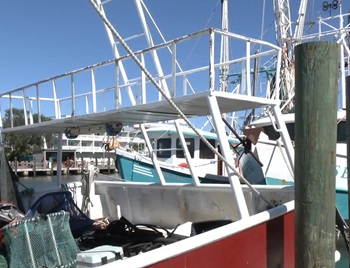 “The influx of imported shrimp has resulted in the decline of our fleets and massive job losses and our local businesses are devastated,” said Bryan Jones, the Vice President of the South Carolina Shrimper’s Association. Standing in front of the shrimp boats of Shem Creek, US Congresswoman Nancy Mace (R) introduced the Protect American Fisheries Act on Friday. “Foreign dumping of shrimp filled with contaminants that don’t meet US safety standards is undercutting honest, hardworking, American fisherman,” said Congresswoman Mace. The bipartisan bill proposes to amend the Magnuson-Stevens Fishery Conservation and Management Act to include “economic causes” as a reason for declaring a fishery resource disaster. Video, more, >>CLICK TO READ<< 06:58
“The influx of imported shrimp has resulted in the decline of our fleets and massive job losses and our local businesses are devastated,” said Bryan Jones, the Vice President of the South Carolina Shrimper’s Association. Standing in front of the shrimp boats of Shem Creek, US Congresswoman Nancy Mace (R) introduced the Protect American Fisheries Act on Friday. “Foreign dumping of shrimp filled with contaminants that don’t meet US safety standards is undercutting honest, hardworking, American fisherman,” said Congresswoman Mace. The bipartisan bill proposes to amend the Magnuson-Stevens Fishery Conservation and Management Act to include “economic causes” as a reason for declaring a fishery resource disaster. Video, more, >>CLICK TO READ<< 06:58
Commentary: Bill would provide relief to SC’s hurting shrimp industry
 First as a shrimper but also as the vice president of the South Carolina Shrimpers Association and as a director of the U.S. Shrimpers Coalition, I write to voice strong support for the Save Our Shrimpers Act (H.7932) that recently was introduced in Congress by U.S. Rep. Troy Nehls, R-Texas. This critical legislation would prohibit U.S. funding for foreign aquaculture projects, specifically shrimp farming, financed through international monetary institutions such as the World Bank that are in turn sold back into the United States, hurting our citizens. The influx of foreign shrimp into our markets has created a severe oversupply, driving down prices and inflating cold storage costs — a double blow to our domestic shrimp industry, which includes both wild-caught and locally farmed shrimp. more, >>CLICK TO READ<< 07:10
First as a shrimper but also as the vice president of the South Carolina Shrimpers Association and as a director of the U.S. Shrimpers Coalition, I write to voice strong support for the Save Our Shrimpers Act (H.7932) that recently was introduced in Congress by U.S. Rep. Troy Nehls, R-Texas. This critical legislation would prohibit U.S. funding for foreign aquaculture projects, specifically shrimp farming, financed through international monetary institutions such as the World Bank that are in turn sold back into the United States, hurting our citizens. The influx of foreign shrimp into our markets has created a severe oversupply, driving down prices and inflating cold storage costs — a double blow to our domestic shrimp industry, which includes both wild-caught and locally farmed shrimp. more, >>CLICK TO READ<< 07:10
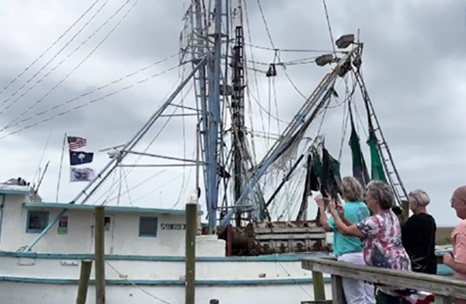
A call for the price of shrimp to rise as St. Helena Island’s boats head to sea
The future is uncertain for shrimpers in coastal South Carolina, but you wouldn’t know that from the bright, buoyant crowd that gathered Saturday at the Gay Fish Company. Attendees rang in the start of the 2024 season with cowbells and noisemakers, sending off a fleet of shrimp trawlers into the Harbour River as their nets waved like sails in the gentle morning breeze. Owned by a family of veterans spanning three generations, the Gay Fish Company on St. Helena Island held its inaugural “Blessing of the Fleet” Saturday morning. Typically involving a local pastor praying over captains for a safe and bountiful season, the practice has been a staple in fishing communities for centuries. But as fisheries up and down the coast grapple with industry shakeups from overseas, the ceremony takes on a new sort of significance. Photos, Video, more, >>CLICK TO READ<< 08:29
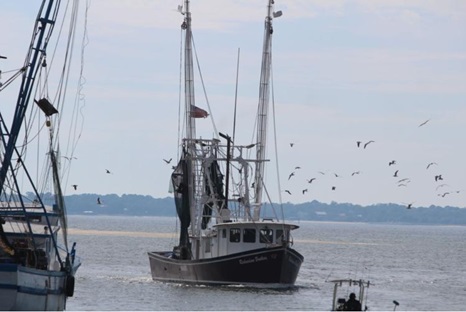
The Fleet fights back: Fishermen unite to curb shrimp dumping
Mount Pleasant’s Economic Development Committee met on Nov. 6 and voted in favor of the proposed economic disaster declaration from the South Carolina Shrimper’s Association and Southern Shrimp Alliance that asserts the Mount Pleasant shrimping fleet can’t sustain itself due to the harmful impacts of shrimp dumping, or the flooding of the market with imported, non-domestic shrimp. Mount Pleasant is the second municipality in South Carolina to declare a state of economic disaster for the domestic shrimping industry. Bryan Jones, vice president of the South Carolina Shrimper’s Association, said the declaration is more than symbolic — it’s one crucial part of a fight that is bringing fishermen from across the Southern United States together to defend their businesses, livelihoods and the shrimping industry as a whole. >>click to read<< 12:40
Save US shrimping industry. Buy domestic wild-caught shrimp.
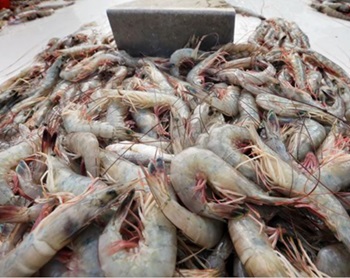 For decades, South Carolina’s shrimpers have faced challenges, but the imported shrimp crisis has reached a critical juncture. The influx of foreign shrimp, often at artificially low prices, is decimating our domestic shrimping industry, putting the livelihoods of thousands of South Carolina families at risk. The situation has changed dramatically in recent years. The rising tide of imported shrimp far outpaces shrimp consumption in the United States because of subsidized foreign production and lax trade enforcement. American shrimpers aren’t competing on a level playing field. We face an inflection point. If we do not take decisive action, the domestic shrimping industry will collapse, with devastating consequences for our coastal communities and the heritage of shrimping in South Carolina. >>click to read<< 09:06
For decades, South Carolina’s shrimpers have faced challenges, but the imported shrimp crisis has reached a critical juncture. The influx of foreign shrimp, often at artificially low prices, is decimating our domestic shrimping industry, putting the livelihoods of thousands of South Carolina families at risk. The situation has changed dramatically in recent years. The rising tide of imported shrimp far outpaces shrimp consumption in the United States because of subsidized foreign production and lax trade enforcement. American shrimpers aren’t competing on a level playing field. We face an inflection point. If we do not take decisive action, the domestic shrimping industry will collapse, with devastating consequences for our coastal communities and the heritage of shrimping in South Carolina. >>click to read<< 09:06
Lowcountry shrimpers say area restaurants buying shrimp from other countries is putting a strain on the industry
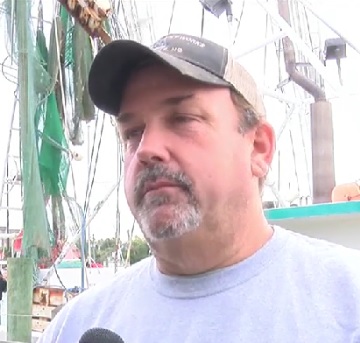 Lowcountry shrimpers are concerned that they are going to be priced out by imported shrimp. But there’s one local organization working to promote eating locally. The South Carolina Shrimper’s Association has multiple goals such as advocating for policies that support the shrimping industry, educating the public about the industry, and promoting sustainable shrimping. One of the biggest problems Lowcountry shrimpers are facing right now is local restaurants importing the shrimp. They say some restaurants import shrimp from other countries at extremely low prices that local shrimpers just can’t afford to beat – and it’s impacting their livelihood. Video, “It’s been happening for a long time now, but it’s gotten to where it’s getting out of hand,” said local shrimper Rocky Magwood. >>click to read<< 13:03
Lowcountry shrimpers are concerned that they are going to be priced out by imported shrimp. But there’s one local organization working to promote eating locally. The South Carolina Shrimper’s Association has multiple goals such as advocating for policies that support the shrimping industry, educating the public about the industry, and promoting sustainable shrimping. One of the biggest problems Lowcountry shrimpers are facing right now is local restaurants importing the shrimp. They say some restaurants import shrimp from other countries at extremely low prices that local shrimpers just can’t afford to beat – and it’s impacting their livelihood. Video, “It’s been happening for a long time now, but it’s gotten to where it’s getting out of hand,” said local shrimper Rocky Magwood. >>click to read<< 13:03

S.C. Shrimpers Association asks public’s help in fighting imported shrimp crisis
The South Carolina Shrimpers Association has announced its new leadership team for the 2023-2025 term. This comes after an emergency meeting was called to address the imported shrimp crisis and elect leaders to navigate the challenges faced by local shrimpers. The newly elected leadership team will shoulder the responsibility of representing the interests of South Carolina shrimpers at both state and federal levels. Their primary focus is on promoting the sustainability of the shrimping industry in the region, particularly in the face of the imported shrimp crisis. Video, >>click to read<< 09:21


































